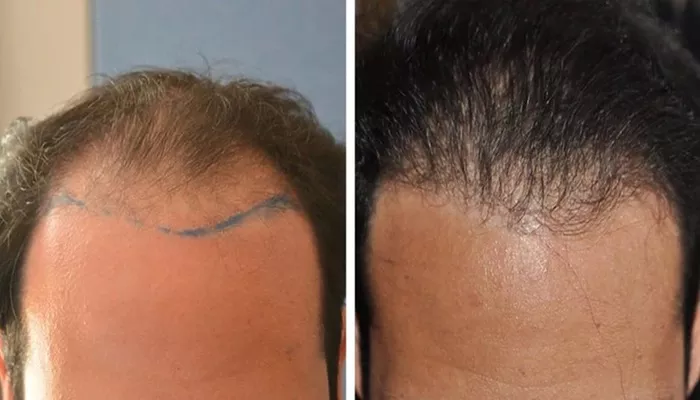Hairline surgery, specifically hair transplant procedures aimed at lowering or reshaping the hairline, has gained significant popularity in recent years. People with high hairlines, receding hairlines, or those simply desiring a more aesthetically pleasing hairline often turn to this surgical option. One of the most pressing questions for individuals considering hairline surgery is how long the results will last. The durability of the outcome depends on a multitude of factors, ranging from the surgical technique employed to the patient’s post – operative care and overall health.
In this comprehensive article, we will delve deep into these aspects to provide a clear understanding of the longevity of hairline surgery.
What is Hairline Surgery
Hairline surgery typically involves the transplantation of hair follicles from a donor area, usually the back or sides of the head, to the frontal area where the hairline is to be adjusted. There are two main surgical techniques used for hair transplant procedures: Follicular Unit Transplantation (FUT) and Follicular Unit Extraction (FUE).
Typical Lifespan of Hairline Surgery Results
In general, when all factors are optimized, hairline surgery can provide long – lasting results. The transplanted hair follicles can continue to grow hair for 10 – 20 years or even longer in many cases. However, it’s important to note that individual results may vary.
Best – case Scenario: In patients with a good genetic profile (minimal or no genetic predisposition to hair loss), who have the surgery performed by an experienced and skilled surgeon using the appropriate technique, and who adhere strictly to post – operative care and maintain a healthy lifestyle, the results of hairline surgery can be almost permanent. The transplanted hair may continue to grow normally for decades, with only minimal changes over time.
Average Lifespan: For the average patient, the results of hairline surgery can last for 10 – 15 years. During this time, the transplanted hair will grow and look natural. However, over time, due to factors such as the gradual effects of genetics, lifestyle changes, or normal aging processes, some degree of hair thinning or loss in the transplanted area may occur. But even in such cases, the results are often still much better than the pre – surgery hairline, and additional treatments or touch – up procedures may be able to maintain or improve the appearance.
Factors Affecting the Longevity of Hairline Surgery
Surgical Technique
The choice of surgical technique can have a significant impact on how long the results of hairline surgery last.
FUT and Longevity: FUT, when performed by an experienced surgeon, can provide long – lasting results. The transplanted follicular units, once properly implanted, have a good chance of surviving and growing hair for many years.
FUE and Longevity: FUE also offers the potential for long – lasting results. The advantage of FUE is that the individual extraction of follicular units reduces the risk of damage to the surrounding follicles during the harvesting process. This means that the transplanted follicles are more likely to remain healthy and continue growing hair over time. Additionally, the less invasive nature of FUE may lead to a quicker recovery, which can also contribute to better long – term results.
Surgeon’s Experience and Skill
The experience and skill of the surgeon performing the hairline surgery are crucial determinants of how long the results will last.
Patient’s Genetics
Genetics plays a significant role in the long – term success of hairline surgery.
Lifestyle Factors
A patient’s lifestyle can also influence how long the results of hairline surgery last.
Diet: A balanced diet rich in vitamins, minerals, and proteins is essential for the health of the hair follicles. Vitamins such as biotin, vitamin C, and vitamin E play important roles in promoting hair growth and maintaining hair health. Minerals like iron and zinc are also crucial.
Stress Management: High levels of stress can have a negative impact on hair health. Stress can disrupt the normal hair growth cycle, causing more hair to enter the resting phase (telogen phase) and eventually fall out. Chronic stress can also lead to hormonal imbalances that may affect the transplanted hair follicles.
Smoking and Alcohol Consumption: Smoking and excessive alcohol consumption can both be detrimental to hair health.


